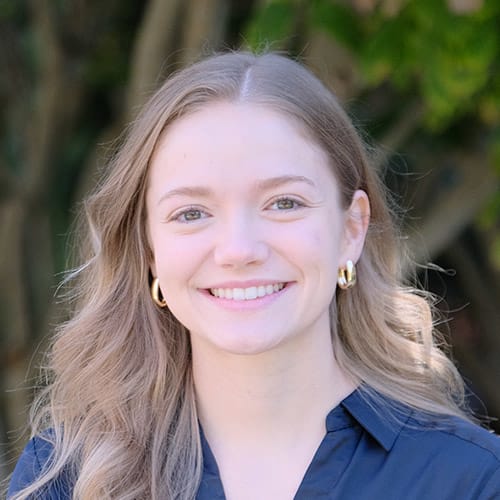
VA Benefits Financial Eligibility: Who Qualifies for Veterans Long-Term Care Benefits?

When seeking senior care solutions for your retired veteran, sometimes the hardest part is figuring out how to cover the cost. The good news is that veterans and their surviving spouses may be eligible for financial benefits through the Department of Veterans Affairs (VA).
Let our care assessment guide you
Our free tool provides options, advice, and next steps based on your unique situation.
The VA pension program provides a monthly payment to veterans who meet certain age, disability, and financial eligibility requirements. Many families already benefit from the VA pension program, but many more may not be aware they’re eligible for other financial support that may help offset the cost of senior care.
Read on to learn more about financial eligibility for VA benefits for long-term care and what options your loved one may qualify for. VA benefits may help pay for costs associated with assisted living. Veterans programs may also pay for nursing home care.
VA benefits financial eligibility requirements: don’t discount your service
In addition to meeting certain clinical and service requirements before being eligible to apply for VA benefits, veterans or their surviving spouses must also meet financial eligibility requirements. To start, the veteran’s net worth, meaning their family income plus their assets, must fall below $138,489. This limit is set by Congress and may be adjusted after November 30, 2022.
An individual’s net worth includes their household income and assets:
Annual income. This includes salary or hourly pay, bonuses, commissions, tips, Social Security benefits, retirement payments, and any other income the veteran’s spouse and dependents may receive.
Assets. Personal property, such as land, financial investments, and home furnishings fall into this category. The asset category doesn’t include one’s primary place of residence or basic home items like large appliances that they wouldn’t bring if they moved to a new house.
An example: too high, or a qualification?
Let’s look at a hypothetical scenario. If a veteran’s annual household income is $12,000 and their assets add up to $128,000, their total net worth is $140,000, meaning they don’t meet financial qualifications for VA benefits.
However, when calculating net worth, certain expenses may be deducted. Deductions can include:
- The cost of senior care
- Non-reimbursable medical expenses
- Medicare premiums or Medicare supplemental premiums
- Products or services prescribed by a doctor
It’s important not to let the complicated requirements convince you that you’re not eligible. Many veterans believe they must have retired from the military or have suffered an injury while in the military before they can receive any benefits, explains Suzette Graham, founder and CEO of Patriot Angels, a trusted partner of A Place for Mom. This is simply not true.
“Unfortunately, this happens more than you would think,” Graham says. She adds she often receives calls from families who have nearly convinced themselves of their ineligibility because of the misleading information they’ve encountered elsewhere.
Graham’s guidance means the example above may not include the full picture.
Read related article:https://www.aplaceformom.com/caregiver-resources/articles/medicare-and-vet-benefits-differences

Let our care assessment guide you
Our free tool provides options, advice, and next steps based on your unique situation.
Continuing that example, and remembering that the veteran’s monthly income is $1,000, or $12,000 per year, let’s assume they pay $4,500 for assisted living each month and are drawing down assets to finance that difference. Their monthly income becomes -$3,500 and their asset balance is reduced each month, too, meaning they would be under the financial threshold.
What is the three-year look-back period?
If you’re thinking about transferring assets to a family member to qualify for VA benefits, be careful. When the VA receives a pension claim, they review the terms and conditions of any assets the veteran may have transferred in the three years before filing that claim. If a veteran transferred assets to someone else, such as a friend or family member, for less than fair market value during the three-year look-back period, and those assets would have pushed the veteran’s net worth above the limit for a VA pension, that veteran could be subject to a penalty period of up to five years.
Keep in mind that because this policy took effect on October 18, 2018, the look-back period doesn’t apply to any veteran who filed their claim before then.
When should I re-apply for VA benefits after initially being denied?
If you or your veteran have been denied benefit eligibility by the VA and disagree with the VA’s decision, it’s perfectly reasonable to think the best bet is to start over and try again. But because re-applying can be so time-consuming, you may want to request a decision review first. Depending on your specific needs, there are a handful of decision review options:
- File a Supplemental Claim if you have new and relevant evidence that the VA didn’t have when reviewing your initial case.
- Ask for a Higher-Level Review to have a more senior reviewer look at your case. You can’t submit new evidence with this option.
- Appeal to the Board of Veterans’ Appeals and have a Veterans Law Judge review your case.
If you feel like you’ve exhausted your options, another application for VA benefits can be submitted at any time, or once the veteran’s penalty period (if applicable), meaning a duration of time when the veteran is ineligible for benefits, has ended.
Rest assured that once a veteran has qualified for benefits, Graham confirms there’s no need to reapply at any point. The Aid and Attendance benefit, for example, provides a lifetime pension as long as the claimant remains under the qualifications and requirements.
How much do VA benefits for long-term care award?
If your family member qualifies for VA benefits for long-term care, their benefit will be calculated based their Maximum Annual Pension Rate (MAPR), or the maximum pension amount a veteran can receive. Your loved one’s MAPR is based on how many dependents that veteran has, their marriage status, whether or not their spouse is also a qualifying veteran, and whether or not the veteran’s disabilities qualify them for Housebound or Aid and Attendance benefits. These amounts are adjusted each year.
“The MAPR is calculated on income versus medical expenses,” Graham reminds. “The maximum net worth currently is $138,489, and that is income and assets. The way you would calculate the MAPR is liquid assets — assets that can be turned into cash — plus income after you have subtracted medical expenses.”
Read over the following qualifications to find out what your veteran’s MAPR may be.
The following applies to veterans with no dependents:
- If they don’t qualify for Housebound or Aid and Attendance benefits, their MAPR amount is $14,753.
- If they qualify for housebound benefits, their MAPR amount is $18,029.
- If they qualify for Aid and Attendance benefits, their MAPR amount is $24,610.
The following applies to veterans with at least one dependent spouse or child:
- If they don’t qualify for Housebound or Aid and Attendance benefits, their MAPR amount is $19,320.
- If they qualify for Housebound benefits, their MAPR amount is $22,596.
- If they qualify for Aid and Attendance benefits, their MAPR amount is $29,175.
The following applies to two veterans who are married to each other:
- If neither person qualifies for Housebound or Aid and Attendance benefits, their MAPR amount is $19,320.
- If one person qualifies for Housebound benefits, their MAPR amount is $22,596.
- If both people qualify for Housebound benefits, their MAPR amount is $25,870.
- If one person qualifies for Aid and Attendance benefits, their MAPR is $32,443.
- If both people qualify for Aid and Attendance benefits, their MAPR is $39,036.

Talk with a Senior Living Advisor
Our advisors help 300,000 families each year find the right senior care for their loved ones.
How do I apply for VA benefits for senior care?
To apply for VA benefits for long-term care, first determine if you or your veteran meets these financial requirements, as well as all other eligibility requirements for VA long-term care benefits. Then, each veteran will need to gather the following documents:
- Social Security number or VA file number
- Military history
- Financial information and that of any dependents
- Work history
- Bank account information
- Original discharge papers (DD-214). Note that the VA won’t accept copies of discharge papers.
Work history and medical information will also need to be provided by veterans under the age of 65. If your loved one is the surviving spouse of a veteran who’s applying for benefits, they’ll need a copy of their marriage certificate.
This process may feel complicated and overwhelming, but there are many ways you can get help with applying for your benefits. Families in need of assistance have the following options:
- Veteran Service Officers, or VSOs, at a VA regional office may be able to offer free, basic guidance on the application process and answer simple questions about available benefits.
- Veteran support organizations, like Veterans of Foreign Wars (VFW), American Legion, and Disabled American Veterans (DAV) may be able to answer questions and offer their guidance free of charge.
- Elder law attorneys can help families with financial planning and the VA benefits application process.
- Accredited VA consultants can help families assess eligibility for VA long-term care benefits and help with financial planning as your loved one’s application is being prepared.
Get expert advice on veterans benefits from A Place for Mom’s trusted, VA-accredited partner Patriot Angels (1-833-879-6017).
Note: A Place for Mom may be compensated if you choose to use Patriot Angels’ services. Per our editorial guidelines, we clearly disclose financial relationships around featured products or services.
This article is for informational purposes only. A Place for Mom doesn’t provide legal advice for benefits applications. For professional legal advice, please consult with a VA-accredited claims representative.
VA benefits financial eligibility requirements: don’t discount your service
Senior living options in all states
The information contained on this page is for informational purposes only and is not intended to constitute medical, legal or financial advice or create a professional relationship between A Place for Mom and the reader. Always seek the advice of your health care provider, attorney or financial advisor with respect to any particular matter, and do not act or refrain from acting on the basis of anything you have read on this site. Links to third-party websites are only for the convenience of the reader; A Place for Mom does not endorse the contents of the third-party sites.
Make the best senior care decision
Make the best senior care decision